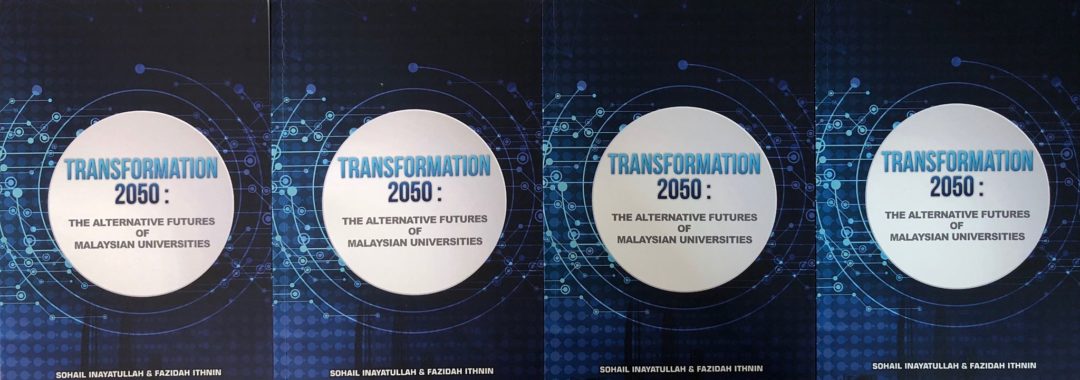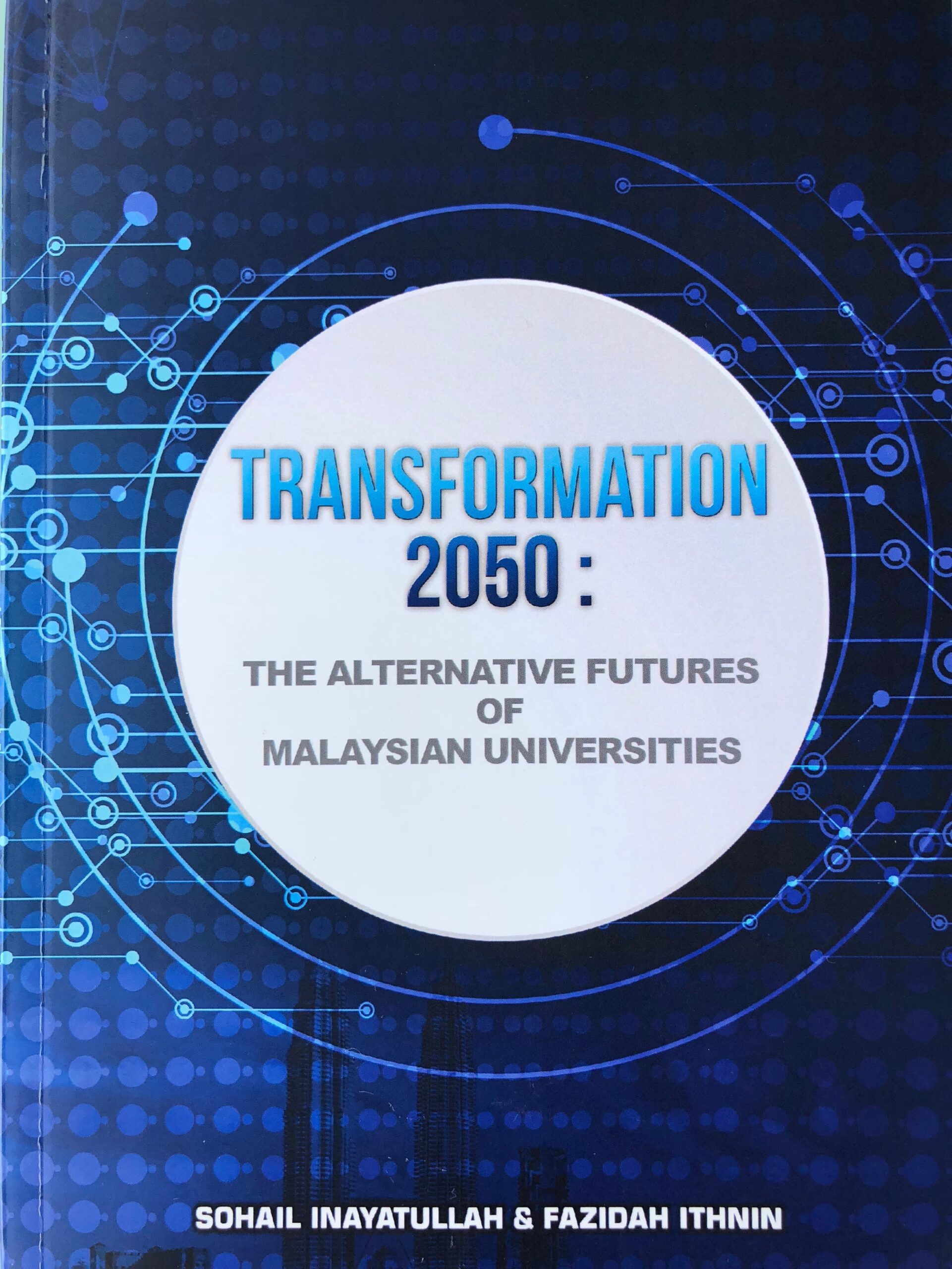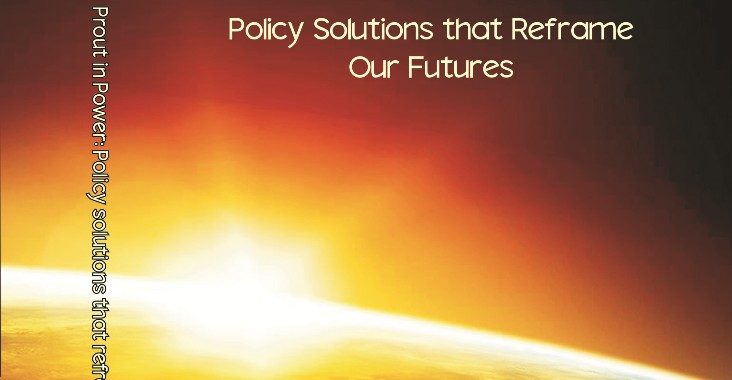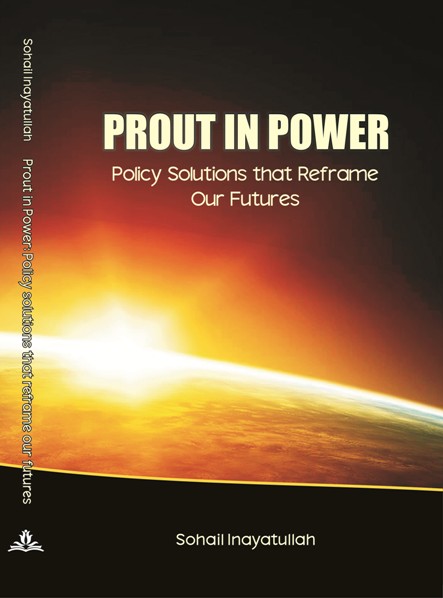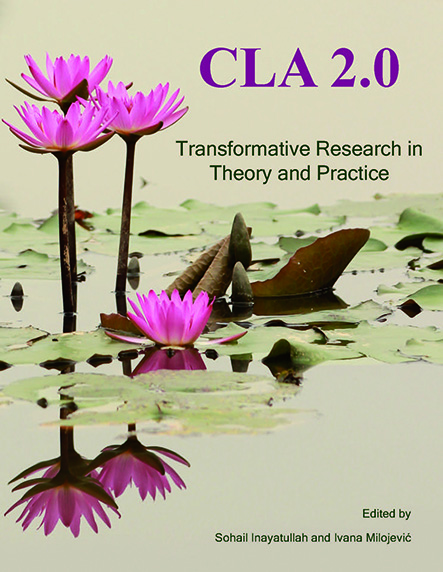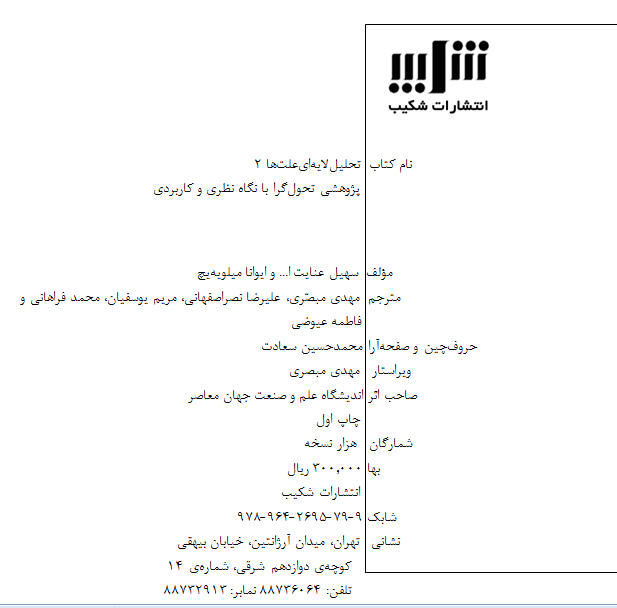Bruno Jacobsen, “Practicing Foresight – Insights from Prof. Sohail Inayatullah: How Future-thinking Enables.” Futures Platform (December 20, 2018). This article is based on content presented at the Strategic Foresight Summit 2018, organized by Futures Platform. https://www.futuresplatform.com/blog/practicing-foresight-insights-prof-sohail-inayatullah
Category Archives: Main Topics
An Insight into Foresight (2018)
Umar Sheraz, “An Insight into Foresight with Dr. Sohail Inayatullah .” Journal of Futures Studies (November 26, 2018). Interview addressing questions such as: What is the role of a futurist and why is foresight important? How to use the outcomes of foresight workshops, to influence future strategy? What is the role of storytelling in foresight? https://jfsdigital.org/2018/11/26/an-insight-into-foresight-with-dr-sohail-inayatullah/
Asia Re-imagined (2018)
The Asia-Pacific Futures Network (APFN) Conference was held on August 28th and 29th 2018 in Bangkok. APFN partnered with the National Innovation Agency of Thailand to host the event, titled Asia Imagined: Disruptions and Alternative Futures. The conference offered a thinking space for futurists to identify emerging issues and new trends, reflect on their possible impacts and the new stories and possible futures they pose for Asia. Full text in Pdf
The Futures of Karachi (2018)
Given congestion, inter-ethnic violence, persistent pollution, and lack of clean water, is there a possibility that Karachi can be different by 2030? 15 experts in the areas of biosciences, media communication, child education and investing met for two days to explore the
alternative futures of Karachi. The workshop was facilitated by the UNESCO chair for futures studies, Professor Sohail Inayatullah with assistance from Puruesh Chaudhary, director of Agahi and founder of the Pakistan State of the Future Index. Full text in Pdf
Pakistan, Leadership, and Cricket (1992)
Many of us are thinking that Imran Khan should run for Prime Minister or better yet President (with Miandad and company as his cabinet). He has been among the few Pakistanis who has taken a group of us and succeeded in uniting us through a common purpose. In Mushahid Hussain’s recent article in The Nation he argues that the success at Melbourne had three factors generally considered missing in Pakistan: leadership, discipline and planning.
Mushahid’s linking cricket to politics should not be seen as a spurious. The Indian writer Ashis Nandy has explored similar links in his book The Tao of Cricket. In his book he explores the connections between cricket and morality. The batsman, if he knows he is out, must declare himself so. He is not to, as in other sports, hope that the umpire did not see or hear the ball nick his bat. The bowler is morally bound to bowl a good bowl even if it the last ball of the match and it may cost his team the victory. But this Victorian gentlemen’s view of morality does not quite fit into the modern world. As with football where winning has become more important than the beauty of the game (Maradona, for example and the goal he scored with his hand), cricket is beginning to enter the modern era. Previously wars were fought with clear formal rules of behavior. Modern war has changed that; victory is promised through accelerating time, through removing citizen and soldier from the battlefield. Death is anonymous.
While a metaphor for modern battle, cricket has not gone to such a transformation. Certainly the switch from the test match to the one-day international has sponsoring linkages. Television enthusiasm, viewer likes for a quick game (quick war), and advertising dollars has made this a necessity. At the same time, the quickening of time has allowed the possibility of a world championship. There need not be long wars and battles fought over many decades. A “ruler of the world”, as the motto of this World Cup, can be anointed in a few weeks. But cricket does appear to be the place from which we can rule the world, much safer and a better use of our resources than military build-up, nuclear ambitions, or a range of other attempts to gain security and sovereignty. We can rise up in the world of sports not war. Economic affluence and cultural unity appear to be better indicators of sovereignty than a huge military.
To do this as important as leadership, discipline and planning is unity, discipline and faith, the motto for Pakistan. The team had a strong sense of unity. There was no slandering of individual players when mistakes were made, rather others picked up the slack. Each player rose to the level needed to succeed. Can one imagine a unified Pakistan?
The team also showed incredible discipline. There were no attempts at an easy victory. When Pakistan was down, it would been have been easy to panic and slog away. Instead, the batters built a solid base from which Inzamamul Haq and Wasim Akram could thrash away. Can one imagine a disciplined Pakistan which doesn’t go for easy money, or easy land, or easy politics? Can one imagine a Pakistan which grows step by step and redistributes this wealth throughout the country, instead of individuals–generals, feudals, politicians–running after the quick win, the quick get rich or get powerful scheme?.
The players and team also showed incredible faith. In the semi-finals and finals they had this look in their eyes. In every competition, it is the eyes that tell who will win. England had a look of fear. They did not believe they could win. Pakistan did. Can one imagine a Pakistan built on faith, on this inner sense of courage. Not in the sense who is the truest Muslim since only Allah, not maulvis, Shariat courts, or next door neighbors can know what is in our hearts (irrespective of how many trips to Mecca, or hours of prayer, or days of fasting), but a faith convinced that the impossible is possible, that a Pakistan based on equity and justice can be realized.
A country with unity, discipline and faith would not have gang-rapes of females, would not have political parties abandoning any sense of human ethics to extract vengeance, would not have despair caused by years of the citizenry being brutalized by security and police forces in the name of “law and order”, would not have a collective feeling of inferiority caused by comparisons with other richer nations, would not have an everpresent anarchy caused by views that since the bureaucracy is so corrupt and every leader is out for himself, I should get what I can before it is too late. It would be a different sort of Pakistan. And as the cricket team has shown us, it would not take that much. Notions of equal justice before the law, due process, the linking of wage ratios between the highest and lowest, tolerance of the views of others (instead of condemnations that they do not represent the Truth), and decentralizing the economy are not that difficult to achieve. But to do that, honesty about our situation, our history must come first. Pakistan could not win the championship until the team could assess what went wrong in Lahore in the previous championship. They did not try and brush aside their defeat in the 1987 semi-finals claiming that it was ordained or give some type of ideological explanation to it. Rather there was a critical analysis: where were the mistakes, how can we not make them again, and what areas of excellence can be improved on. This is a different approach then the typical approach in Pakistan which merely glorifies our history, our mission in the Muslim world, or South Asia, or the planet (of course, silently everyone whispers stories of betrayal) and our founders. As in sports, mistakes are made but these can be discussed and changes made, unless history has become a dogma merely restated over and over until all believe the lie. We should remember the honesty of poets like Faiz who reminded of our own deceits.
Returning to cricket, we should take seriously Khan’s suggestions for improving cricket in the nation, that is, for building a professional cricket system. But the tenor of these suggestions could apply for the political system as a whole. It would be sad for four years to have gone by and not seen any improvements: in the cricket bodies and the political bodies. Inertia and the past would have once again been victorious then.
Of course, all this is not argue that we should forget our past. It is our traditional culture that made the championship a joy to watch: hugs and smiles after each wicket taken, a strong sense of morality, bowing in prayer after the victory, and instead of a trip to Disneyland, as in American football where the victors go, a trip of thanks and submission, a trip to Mecca. We can take our past with us as we march into the future. Of course, while trips to Mecca are one thing, the State giving plots of land is another. I would rather see land going to the millions of farmers and laborers slaving away just trying to meet their basic needs. We should remember it was land reform that was the catalyst in the economic miracles of East Asia.
But this is not the time to wallow in our mistakes, rather it is a time to rejoice, to enjoy the disciplined flair that won the championship. There is much to build on. This world championship has shown us that it is possible. While some would want Imran Khan (or Javed Miandad, or Mushtaq Ahmed, or any of the other team members) for President, I would prefer that there be a thousand Imran Khans working in equitable structures where they could flourish. Can it be done? Pakistan’s delightful victory has shown us that it can. Perhaps 1996 or 2002 can be targets for this type of championship as well.
Published in The Muslim, April 23, 1992.
Missing Skills Malaysia (2018)
Missing Skills: Is higher education on the mark?
Malaysia’s growth story is coming under pressure from many sides, including a shortage of skilled workers in critical occupations, high dependency on cheap labour, which discourages investment in innovation, a higher education system hungry for resources and low collaboration between industry and academic. Can the stakeholders come together to solves this complex problem? Rash Behari Bhattacharjee and Syahirah Syed Jaafar examine the issue. Full text in Pdf
Interview The Edge (2018)
For some three decades, Prof Sohail Inayatullah, a futurist, has transformed organisations and people’s lives by changing the way they think. He is the chair of Futures Studies for Unesco and spearheads research in Malaysia, Taiwan and Australia and advises government on futures thinking. Sohail, who is a co-founder and director of the Australia-based educational think-tank metafuture.org, speaks to Rash Behari Bhattacharjee about the power of “imagining the unthinkable and dreaming the impossible”. Full text in Pdf

